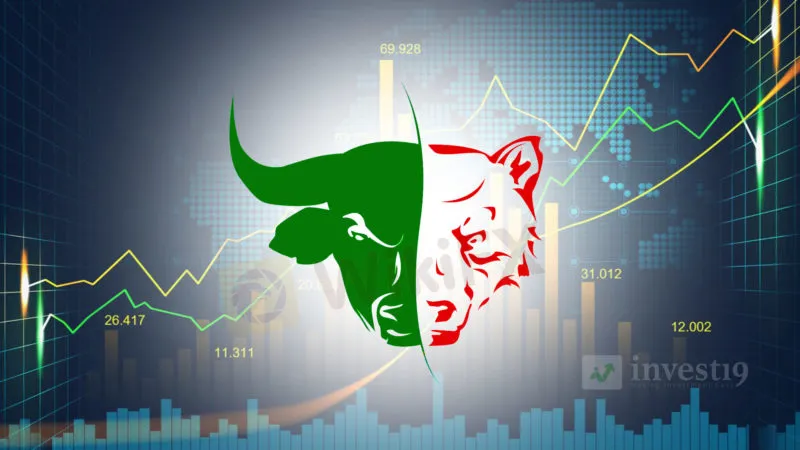简体中文
繁體中文
English
Pусский
日本語
ภาษาไทย
Tiếng Việt
Bahasa Indonesia
Español
हिन्दी
Filippiiniläinen
Français
Deutsch
Português
Türkçe
한국어
العربية
How to Not Fail During Bear Market in 4 Tricks Pt. 1
Abstract:What would you do if you were trapped during market decline for as much as 20%? Worse, the stock market could actually decline further to 5% more during the bear market.

At this time, major investors missed to notice that they were actually in the bear market until they lost money. So, here are the most important tricks you could do to shield from loss and more importantly keep making profit during bear markets.
The first is dollar-cost averaging or DCA. These are actually investment tricks where investors could divide their invested amount across periodic purchases. This effort could help investors reduce the impact of volatility in mostly overall purchase. Dollar-cost averaging strategy allows investors to make and manage purchases of equities at the best prices. In addition, DCA actually has another name, it is the constant dollar plan. Therefore, investors should have a plan about where and when they must invest.
In other words, regardless of price, this practice invests in equal amounts over the regular intervals. Basically, the goal of dollar-cost averaging is to shield the investors from the overall impact of volatility. This is important to protect target asset prices. The reason is because the price varies each time during investments.
The second is calibrate risk. Calibrate risk is the best solution for this condition: basically no amount of dollar-cost averaging can get around the fact that workers with higher balance could survive the bear market more. Meanwhile, older plan participants do not have time to fix the loss before retirement. So, there is actually a big gap between the groups. It means that investors must have a retirement approach to a bear market more than a younger worker with smaller account balance.

Disclaimer:
The views in this article only represent the author's personal views, and do not constitute investment advice on this platform. This platform does not guarantee the accuracy, completeness and timeliness of the information in the article, and will not be liable for any loss caused by the use of or reliance on the information in the article.
Read more

Malaysian Vendor Falls Victim to Forex Scam, Losing RM500K in Life Savings
A Malaysian night market vendor has lost RM500,000 which is the entirety of his and his wife’s life savings after falling prey to a fraudulent foreign exchange investment scheme registered in Seychelles, East Africa.

What Can Expert Advisors Offer and Risk in Forex Trading?
Know the pros and cons of Expert Advisors in Forex trading—automation boosts efficiency, but risks like over-reliance and glitches require careful balance.

ASIC Banned the Director of JB Markets
The Australian Securities and Investments Commission (ASIC) has banned Peter Aardoom, the director of JB Markets, for eight years from associating with any financial services firm. This ban follows a series of regulatory actions against JB Markets, which included the cancellation of its Australian Financial Services (AFS) license less than a year ago.

5 Steps to Empower Investors' Trading
Forex trading is a world full of opportunities and challenges, attracting investors from around the globe to participate.
WikiFX Broker
Latest News
Brazilian Man Charged in $290 Million Crypto Ponzi Scheme Affecting 126,000 Investors
Become a Full-Time FX Trader in 6 Simple Steps
ATFX Enhances Trading Platform with BlackArrow Integration
Decade-Long FX Scheme Unravels: Victims Lose Over RM48 Mil
What Can Expert Advisors Offer and Risk in Forex Trading?
5 Steps to Empower Investors' Trading
How to Find the Perfect Broker for Your Trading Journey?
The Top 5 Hidden Dangers of AI in Forex and Crypto Trading
The Most Effective Technical Indicators for Forex Trading
Indian National Scams Rs. 600 Crore with Fake Crypto Website
Currency Calculator







